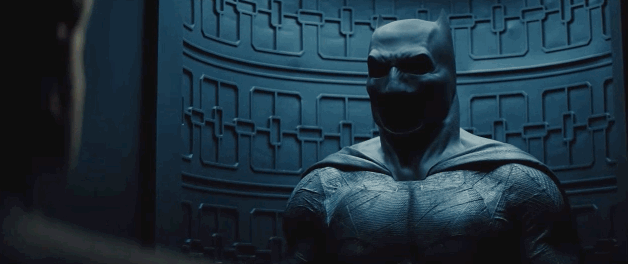Best of the Week: What's Next for the DC Extended Universe, 'Star Wars: The Force Awakens' Extras and More
The Important News
DC Delirium: Ben Affleck wrote a script for a solo Batman movie. Zack Snyder explained how deaths in Batman v Superman set up Justice League. James Wan stated that Aquaman will have a badass take on the character. Suicide Squad is reshooting some scenes to make it funnier.
Box Office: Batman v Superman broke some box office records.
Star Wars Mania: Star Wars: The Force Awakens hit VOD.
Marvel Mania: Tom Hiddleston said Thor Ragnarok might be his last Marvel movie.
X-Men X-citment: Jennifer Lawrence said she’s dying to do more X-Men movies. Maisie Williams and Anya Taylor-Joy might star in The New Mutants.
Sequelitis: Sicario 2 will bring back the three stars of the original. Robin Wright joined Blade Runner 2.
Franchie Fever: Disney is making a live-action spinoff of Snow White and the Seven Dwarfs.
Casting Net: Jim Parsons will star in Man-Witch.
Vocal Boards: Fred Armisen will voice Krang in Teenage Mutant Ninja Turtles: Out of the Shadows. Finding Dory added some actors from The Wire.
Sound Tracking: Hans Zimmer declared he will no longer score superhero movies.
Name Game: The Kingsman sequel was titled Kingsman: The Golden Circle.
Remake Report: The next Friday the 13th reboot will be a period piece. Bryan Cranston and Kevin Hart will star in a remake of The Intouchables. Starman is the next John Carpenter movie getting a remake.
Festival Fair: Woody Allen’s latest will open the Cannes Film Festival.
Celebrating the Classics: Ripley’s Reeboks from Aliens are coming to stores for Alien Day.
New Directors/New Films: Jonah Hill will make his directorial debut with Mid-90s. Alex Gibney will make his narrative debut with The Action.
The Videos and Geek Stuff
New Movie Trailers: The Lego Batman Movie, Alice Through the Looking Glass, Suicide Squad, Lights Out, The Witch, The Conjuring 2, The American Side, Me Before You and Mother’s Day.
TV spot: Captain America: Civil War.
See: The best movie-related April Fools’ Day jokes.
Watch: A fake trailer for a version of Suicide Squad featuring classic movie villains.
See: What DC Comics writers and artists thought of Batman v Superman.
Watch: A breakdown of all the Easter eggs in Batman v Superman.
See: Batman and Superman references in movies and TV shows.
Watch: Batman fights The Terminator.
Learn: How Bill Hader and Ben Schwartz created the voice of BB-8. And how chainsaws inspired the voice of Kylo Ren.
See: The cutest BB-8 cosplay ever. And the best visual-effects shot in Star Wars: The Force Awakens.
Watch: Daisy Ridley’s emotional Star Wars: The Force Awakens audition.
Learn: How much it would cost to attend Hogwarts.
See: Jurassic Park reimagined as a Disneynature documentary.
Watch: An honest trailer and an alternate ending for The Revenant.
See: Joseph Kosinski’s trailer for the new Doom video game.
Watch: The NeverEnding characters reunited for a commercial.
Learn: How to add the Mission: Impossible lifelike mask effect in your own movie.
See: This week’s new movie posters.
Our Features
Monthly Movie Guide: The April movie calendar (above) features everything you need to see this month.
Comic Book Movie Guides: A hardcore Batman fan reviews Batman v Superman. Also: the reason for the shocking Batman v Superman ending. Plus: how Warner Bros. can turn the DC Extended Universe around.
Interview: Ti West on his subversive Western In a Valley of Violence.
Horror Movie Guide: Catch up on all the latest horror news and trailers.
Home Viewing: Here’s our guide to everything hitting VOD this week.
and
MORE FROM AROUND THE WEB:







